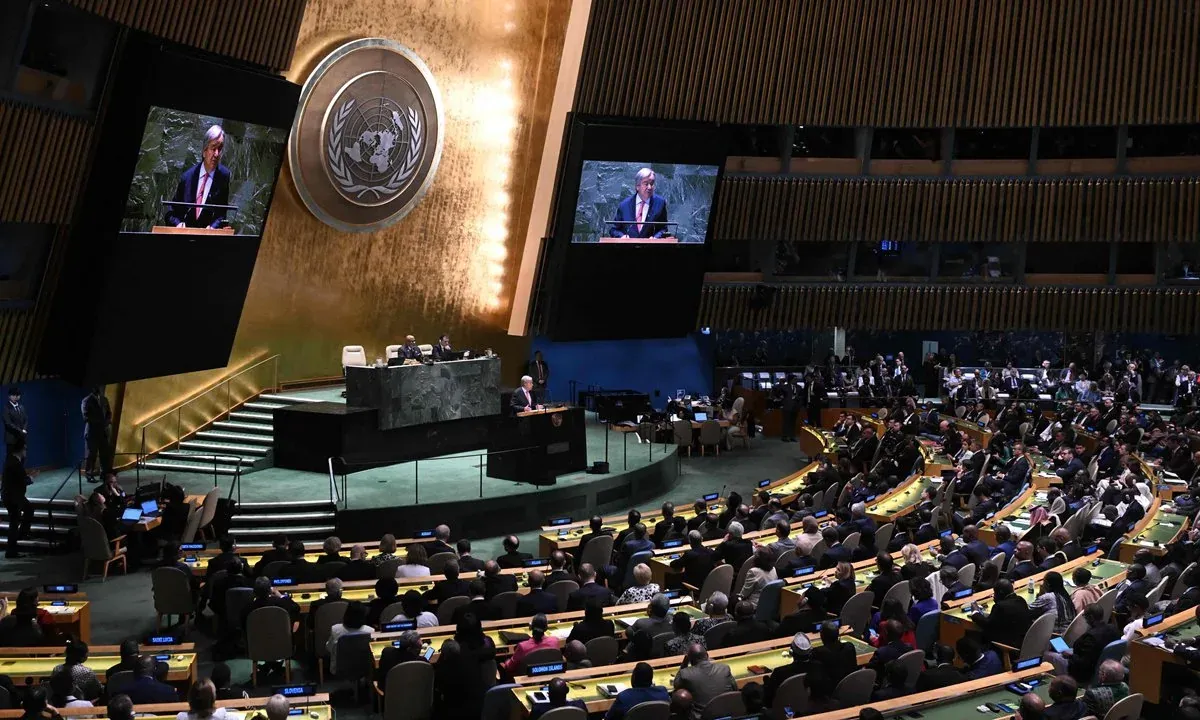The Power Dynamics at UNGA 2023: Global Development vs Geopolitical Agendas
As the UN Secretary-General Antonio Guterres lamented that "Global governance is stuck in time," the recent proceedings of the United Nations General Assembly (UNGA) revealed a stark divide between pressing global development issues and national geopolitical pursuits. The U.S. President, Joe Biden, spotlighted the Ukraine crisis during

As the UN Secretary-General Antonio Guterres lamented that "Global governance is stuck in time," the recent proceedings of the United Nations General Assembly (UNGA) revealed a stark divide between pressing global development issues and national geopolitical pursuits. The U.S. President, Joe Biden, spotlighted the Ukraine crisis during his speech, attracting both support and criticism for deviating from the main focus of this year's UNGA — global development.
Skewed Priorities?
While Biden made a poignant call to global leaders for unflagging support for Ukraine against Russian aggression, his approach raised eyebrows among experts and countries of the Global South. They question Washington's commitment to helping developing nations, given that Biden's speech sidestepped any significant proposals for their advancement. The impression that the U.S. is leveraging the Ukraine crisis to serve its geopolitical aims is becoming increasingly hard to shake off.
The Question of Bilateral Relations
Another aspect that drew attention was Biden's remarks on Sino-U.S. relations. Although he emphasized the need to "responsibly manage competition" between the two superpowers, critics argue that his words only betray a dwindling set of options for handling this crucial bilateral relationship. Despite a somewhat softened tone, skepticism remains high about whether the U.S. will take concrete steps to improve ties with China, particularly given the historical disconnect between U.S. rhetoric and action.
European Council Steps In
Interestingly, European Council President Charles Michel is expected to urge China to use its influence to guide Russia toward a peaceful resolution in Ukraine. This direct appeal at the UNGA underlines the complex web of relations and interests that bind global powers.
Global South in the Backseat?
Dennis Francis, the president of the 78th session of the UNGA, encouraged member states to use this high-level week to focus on "dialogue and diplomacy," underlining that "peace is an investment in our collective prosperity." The glaring absence of substantial U.S. proposals to help the Global South achieve the Sustainable Development Goals has not gone unnoticed.
Climate Change: A Common Ground?
Among the geopolitical wrangling, climate change appeared to be a potential area of cooperation between China and the U.S. Both countries have suffered from extreme weather events recently, and Biden's speech and his sideline meeting with China's Vice President Han Zheng seemed to underscore the importance of collaborative climate governance.
Stuck in a Bottleneck
Experts believe that U.S. foreign policy is currently in a bottleneck, particularly concerning its relationship with China. Despite this 'window of opportunity,' there is increasing uncertainty about whether the U.S. will take effective steps to improve bilateral ties and shift focus to pressing global issues like climate change and global development.
As global leaders debate within the walls of the UN, their words will shape not only international relationships but the future of global governance itself. With development issues pressing for immediate attention, can the UNGA shift its focus away from narrow geopolitical agendas? Only time will tell.




